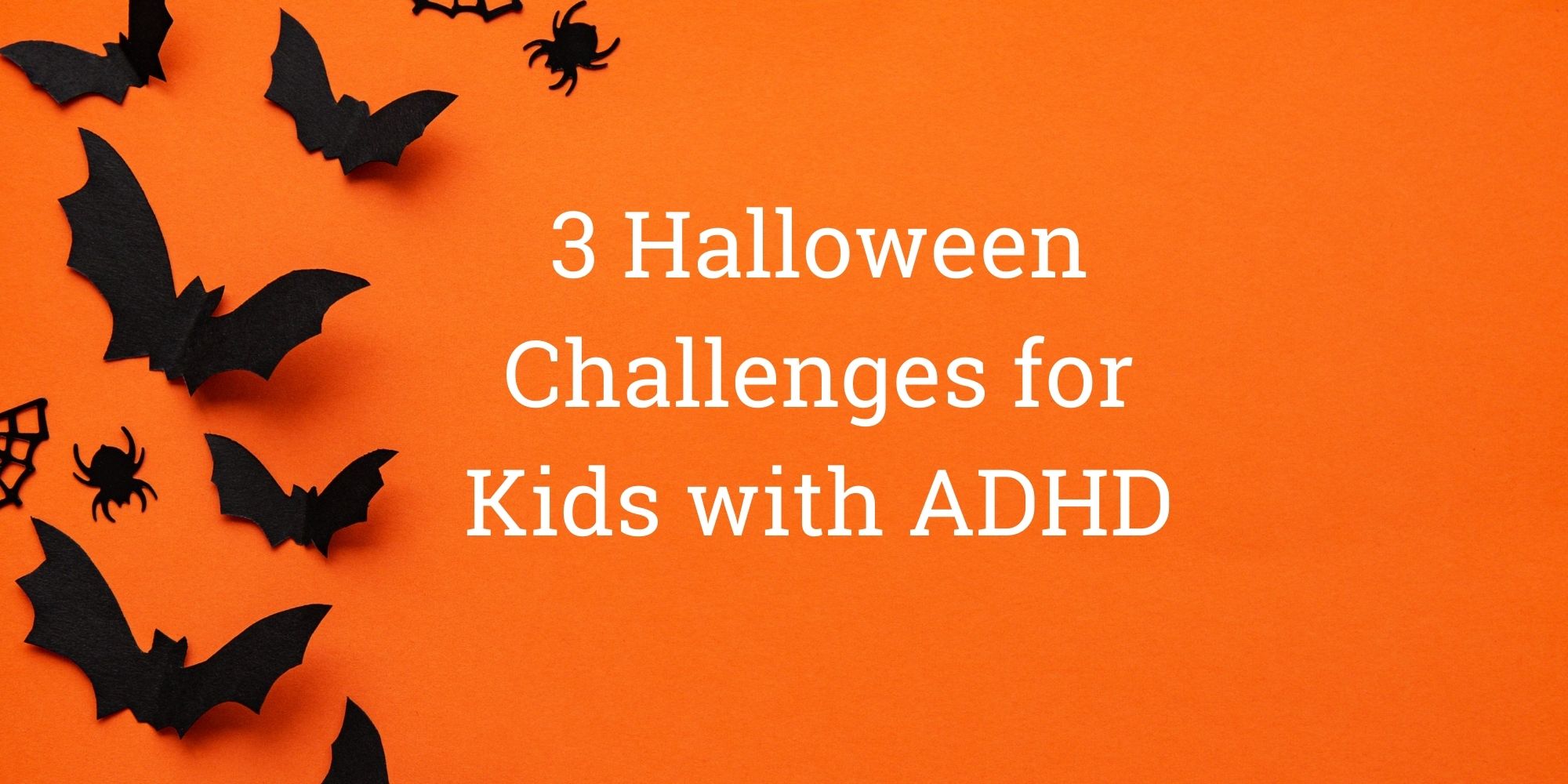
3 Halloween Challenges for Children with ADHD
Halloween is right around the corner, and for many kids, it’s one of the most exciting days of the year. There’s costumes, candy, spooky decorations, Halloween parties, trick-or-treating, and a whole lot of fun. Unfortunately, Halloween presents a few challenges for children with ADHD.
Below, our team of ADHD experts explores these challenges and provide tips for overcoming them so that your child can experience a fun — and safe — Halloween.
1. Adhering to Safety Rules
Halloween, despite all of the fun, is one of the most dangerous days of the year for children. US News reports highlight that the list of dangers including:
- Tripping over ill-fitting costumes
- Visual impairments due to masks or wigs
- Dangers when crossing the street
Children with ADHD may run from house to house and pay little attention to the cars driving in the road. The combination of excitement and inattention can lead to children getting separated from their trick-or-treating group.
What You Can Do
There are many things you can do to help promote safety on Halloween. Here are just a few ideas:
- Discuss all safety rules with your child before even leaving the house (your child may be too excited to fully take in your message if you start this conversation once you’ve started trick-or-treating.)
- Talk about stranger safety.
- Ensure that your child can see through his/her mask and that the costume won’t pose a tripping hazard.
- Review the trick-or-treating map with your child.
- Create a safety plan in the event that your child is separated from you.
- Give your child glow sticks or reflective arm band for increased safety when crossing the streets at night.
- Review proper street crossing rules.
2. Eating Too Much Candy
While candy doesn’t cause ADHD, consuming high levels of sugar (and generally following poor dietary habits) can exacerbate symptoms of ADHD. For children who struggle with impulse control, it can be even harder to resist the temptation of candy.
What You Can Do
Many parents have adopted creative solutions for dealing with all.of.the.candy on Halloween. Here are a few ideas:
- Allow your child to trick-or-treat and enjoy the fun tradition, but when they return home, allow them to trade in their bag of candy for non-candy treats, such as race cars, books, dolls, bouncy balls, or some other goodie they’ve had their eye on. You can then donate the candy.
- Create a candy calendar, marking out how many pieces your child can have each day.
- Limit the number of houses you visit to reduce the amount of candy you bring home.
Regardless of how many pieces of candy your child enjoys, be sure to focus on other healthy foods throughout the rest of the day.
3. Calming Down at Bedtime
Winding down for bedtime after a fun-filled Halloween can be tricky. Because children with ADHD may struggle to regulate their emotions, you may see an uptick in temper tantrums, especially if your child is upset that Halloween is over.
What You Can Do
Thankfully, there are many ways you can make bedtime calmer on Halloween. Here are a few ideas.
- Be sure that you’re implementing good sleep hygiene practices
- Create a special bedtime routine just for Halloween e.g., reading a special Halloween book or wearing themed pajamas
- Allow extra time for your bedtime routine on Halloween
- Let your child know their schedule for the day so they have time to prepare mentally
- Give more frequent reminders when shifting activities
- Follow these tips for making Halloween more ADHD-friendly
Need Help Managing Your Child’s ADHD?
Here at Next Step 4 ADHD, we are a multidisciplinary practice, and our team of experts excels at diagnosing and treating ADHD in children. If your child is struggling with ADHD, we can help. Book your appointment here and get started with your next steps today.
Learn More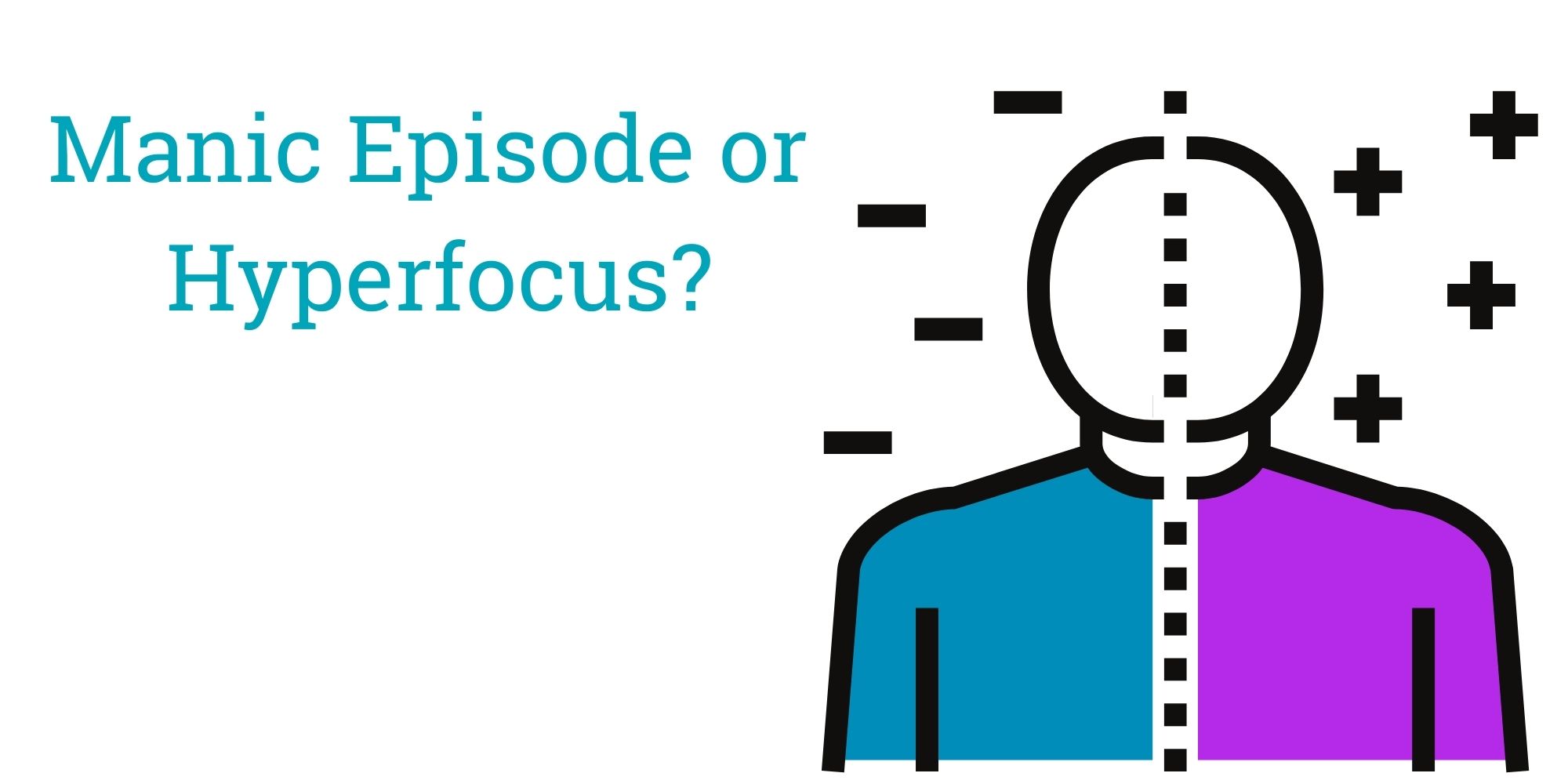
Hyperfocus or Hypomania? How to Tell the Difference between ADHD and Bipolar Disorder
Both ADHD and bipolar disorder share a few symptoms: hyperactivity, difficulty thinking, and disorganization. With these overlapping symptoms, how can do you tell which disorder you have?
Here at Next Step 4 ADHD, our team of multidisciplinary experts excels at diagnosing mental health conditions and co-occurring disorders.
In this blog, we’ll discuss the differences between hyperfocus and hypomania and how to tell the differences.
How Often Do ADHD and Bipolar Disorder Occur Together?
According to Children and Adults with Attention-Deficit/Hyperactivity Disorder (CHADD), more than 66% of individuals with ADHD also have another disorder. OCD, bipolar, anxiety, and depression often co-occur with ADHD. To complicate matters, many of these conditions share overlapping symptoms.
You can learn more about comorbidities here.
So, how do you tell the difference between mania and hyperfocus?
Learn more in this video:
What Is Hyperfocus?
It’s a common misconception that people with ADHD can’t focus on anything. In fact, ADHD is an interest-based condition, and it’s possible to focus a lot on the things that interest you.
Hyperfocus is common among individuals with ADHD. It’s an intense highly focused attention, in which you concentrate so hard on something that you lose track the time, your surroundings, and everything else around you.
What is Mania?
Like hyperfocus, mania can cause you to lose track of your surroundings. A manic episode is characterized by euphoria, increased activity, and decreased need for sleep.
However, unlike hyperfocus, mania can also cause you to feel jumpy and agitated. People can also experience illusions of grandeur, the need to participate in risky behavior, and “a flight of ideas.”
Manic episodes are common in individuals who have bipolar disorder, and they are usually alternated with periods of bipolar depression. Hypomania is very similar to mania, but it’s a less intense version.
Treating Bipolar and ADHD
Bipolar and ADHD are treated differently, so it’s important to know which condition you have. That’s why the first step is always a comprehensive evaluation and an accurate diagnosis.
ADHD is often treated with:
- Lifestyle modifications
- Therapy
- Medication, such as stimulants and non-stimulants
Bipolar disorder is often treated with:
- Lifestyle modifications
- Therapy
- Medication such as mood stabilizers
If you’re struggling with either hyperfocus or manic episodes, we can help. With the right treatment, you can thrive! Call us at 502-907-5908 or request your appointment here.
Learn More
The ADHD and Seasonal Affective Disorder Link
Did you know that 30% of individuals with ADHD will have a depressive episode at some point? If you have ADHD, your chances of developing depression is four times greater than it is for those people without ADHD. But how do you know if you’re dealing with major depression or seasonal affective disorder?
In this article, we’ll take a look at the ADHD and depression connection, and then we’ll zero in on the signs of seasonal affective disorder.
ADHD and Depression
In this video, Roberto Olivardia, Ph.D. explains why individuals with ADHD are more likely to experience depressive episodes.
ADHD and Seasonal Affective Disorder
There are many types of depression including major depression, seasonal affective disorder, and postpartum depression. Because fall is just around the corner, let’s focus on seasonal affective disorder.
Seasonal affective disorder, or SAD, is a type of depression that is related to the change in seasons — typically the shift from summer into fall.
You can learn more about SAD by watching the video below:
6 Signs of Seasonal Affective Disorder
Many mental health conditions share the same symptoms, so it’s important to receive an accurate diagnosis before embarking on any treatment plan. Here at Next Step 4 ADHD, our multidisciplinary team excels at diagnosing and treating co-occurring disorders.
You might suspect you have SAD if you:
- Feel sad
- Notice changes in your sleeping and eating patterns
- Have lost interest in your favorite hobbies
- Feel more intensely sad with the changing of the seasons
- Feel guilty
- Feel worthless
- Suicidal thoughts
The National Suicide Prevention Lifeline is a national network of local crisis centers that provides free and confidential emotional support to people in suicidal crisis or emotional distress 24 hours a day, 7 days a week.
Their number is 1-800-273-8255.
Treating SAD and ADHD

The good news is that the right treatment can help you feel better. SAD is often treated with lifestyle modifications (exercise, sleep hygiene, spending time outside), therapy, and medication.
Don’t brush off these symptoms. If you’re struggling with feelings of sadness, and you suspect that you might have ADHD and SAD, don’t hesitate to reach out to us. You can reach our Louisville, Kentucky office at 502-907-5908. You can also request an appointment online.
Learn More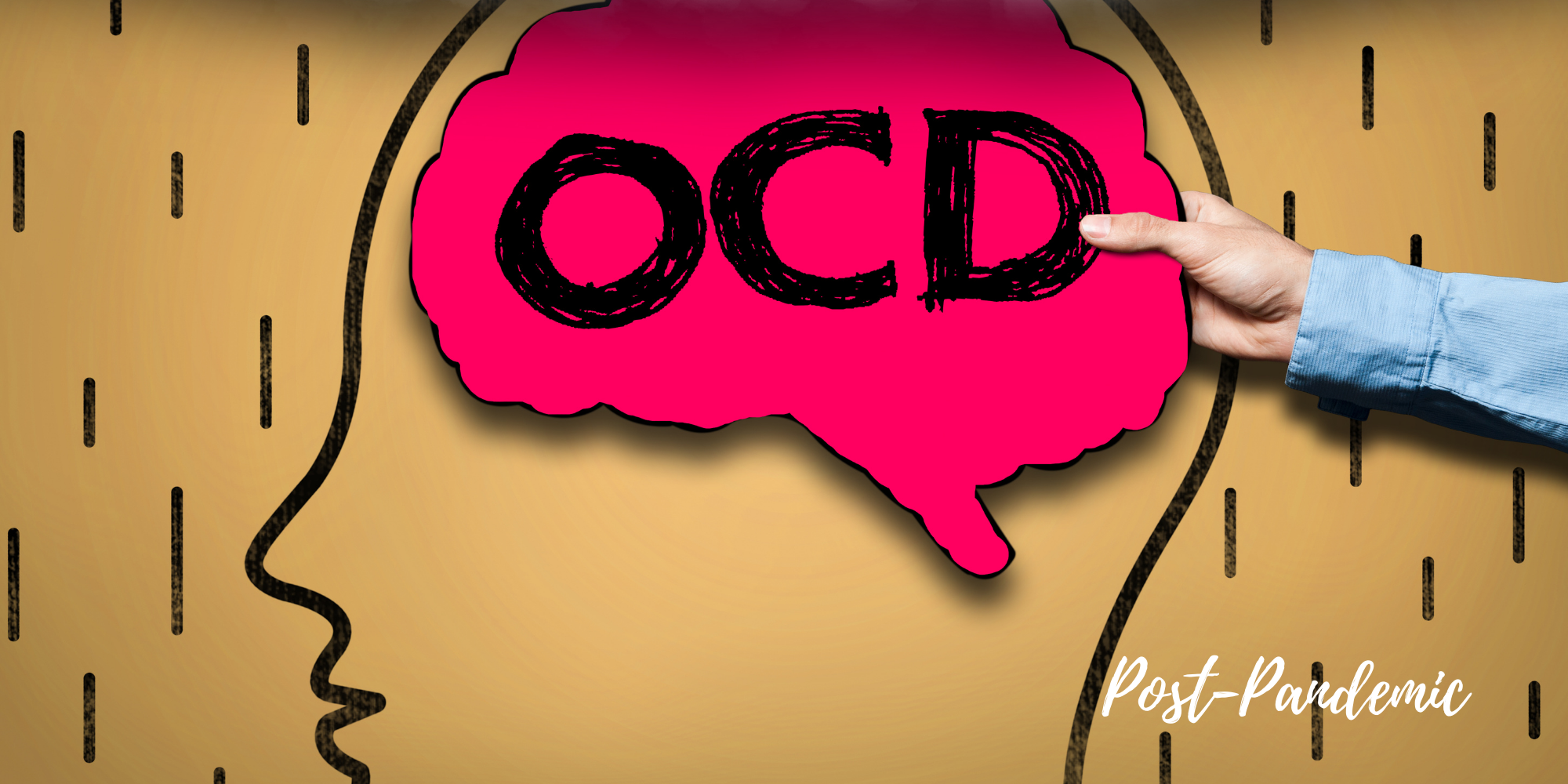
Dealing with OCD and ADHD Post-Pandemic
The pandemic has been a rather interesting time for persons struggling with OCD; the rest of the world has become “germaphobic.” And rightly so, given the contagious and lethal nature of Covid-19.
Everyone, or at least most people, adopted the practice of routinely thinking about germs, wiping down surfaces, and vigilant hand washing. Individuals with OCD have started to think and say things like, “For once in my life, it is nice to see that everyone else has a taste of what it is like to walk in my shoes, to live in my head for a little bit…” For patients who struggle with severe OCD ( and the amount of mental torment and time spent obsessing about germs), it vastly outweighs that which most of us without OCD experienced temporarily during the pandemic. Any taste we had of obsessing about germs was a fraction of the mental torment that persons with OCD experience daily.
And for those with OCD and ADHD: what can be done? OCD and ADHD often occur together, at a rate of 11.8% co-morbidity of ADHD in individuals with OCD. Here at Next Step 4 ADHD, we not only treat ADHD, but also any co-occurring disorders too.
Continue reading to learn more about OCD, ADHD, how these conditions overlap, and (most importantly) how the right treatment can help.
What Is OCD?
Obsessive-compulsive disorder (OCD) is an anxiety disorder marked by recurrent intrusive thoughts and fears that lead to ritualistic behaviors. At first, you might find the obsessions and compulsions are manageable, but left untreated, the patterns of OCD can impact all aspects of your life.
What is ADHD?
ADHD stands for attention deficit hyperactivity disorder, and according to the Diagnostic and Statistical Manual of Mental Disorders, there are 18 diagnostic criteria that must be met before someone is diagnosed with ADHD. This includes hyperactivity, impulsivity, inattention, and more. (You can read about the lesser-known symptoms of ADHD here.)
Are you noticing these signs of ADHD?
How are ADHD and OCD similar?
ADHD and OCD are two disorders that share a few common symptoms and cause similar issues, and interestingly, both disorders have a genetic connection.
Here are a few ways that ADHD and OCD are similar:
Both conditions involve the same brain areas

ADHD and OCD both produce atypical brain activity in the same area of the brain — the frontostriatal area. This has been documented through brain scans.
This neural pathway is involved in processes like:
- Shifting your attention from one thing to the next
- Being mentally flexible
- Developing habits
- Creating goal-directed behaviors
When this area of your brain (the frontostriatal circuit) isn’t functioning at 100%, it can be harder for you to remember things, make decisions, make and keep plans, and switch from one task to another.
ADHD and OCD can both interfere with academic and career success
ADHD is notorious for contributing to school and work problems because ADHD can make it harder for people to manage their time, remain focused, and complete complicated or complex tasks.
Poor time management and inattention can lead to tardiness or frequent mistakes at work.
Likewise, the time involved in carrying out OCD rituals (especially checking behaviors) can also create problems at work or school due to tardiness.
Obsessions, compulsions, and the anxiety associated with OCD can limit your focus.
In short: both of these conditions can affect your grades, your attendance at work or school, and your performance.
OCD and ADHD can lead to inattention
Inattention is one of the biggest symptoms of ADHD, but OCD can also make you seem inattentive. For example, if you are preoccupied by an obsession, you might not be able to focus on what’s happening around you.
OCD and ADHD can impact your relationships with family, friends, and coworkers
Both of these conditions require extra support from the people in your life. Family members or friends may be involved in encouraging you or supporting you as you seek treatment.
Treating Co-Occurring Conditions
Here at Next Step 4 ADHD, we take a multidisciplinary approach to treatment. This means your treatment plan is well-rounded and may include any of the following:
- Medication
- Therapy
- Lifestyle modifications
Medications
Common medications used to treat ADHD include both stimulants and non-stimulants.
Some medications may be used to treat both ADHD and anxiety at the same time. According to a 2009 study, selective norepinephrine reuptake inhibitors (SNRIs) may target both ADHD and anxiety symptoms.
Therapy
While medication is often included into the treatment plans for ADHD, many people also benefit from non-medication therapies too. This is especially true for those diagnosed with an anxiety disorder, including OCD.
Approaches such as cognitive behavioral therapy (CBT) can provide strategies for overcoming many of the underlying struggles of both anxiety disorders and ADHD.
In addition to CBT, lifestyle changes can also help reduce symptoms of both ADHD and OCD. This includes:
- Exercising regularly
- Eating well-balanced meals
- Practicing stress management techniques
- Practicing self-care, including good sleep hygiene
- Relaxing
A Word From Next Step 4 ADHD
A co-occurring diagnosis of OCD can be a lifelong reality for an adult or child with ADHD. It’s normal to feel overwhelmed at the thought of multiple diagnoses, but learning more about the connection between these two conditions is the first step toward improving your control over your life. When you’re ready to schedule your consultation, give our Louisville, Kentucky office a call and we’ll help you take your next steps so you can thrive.
Learn More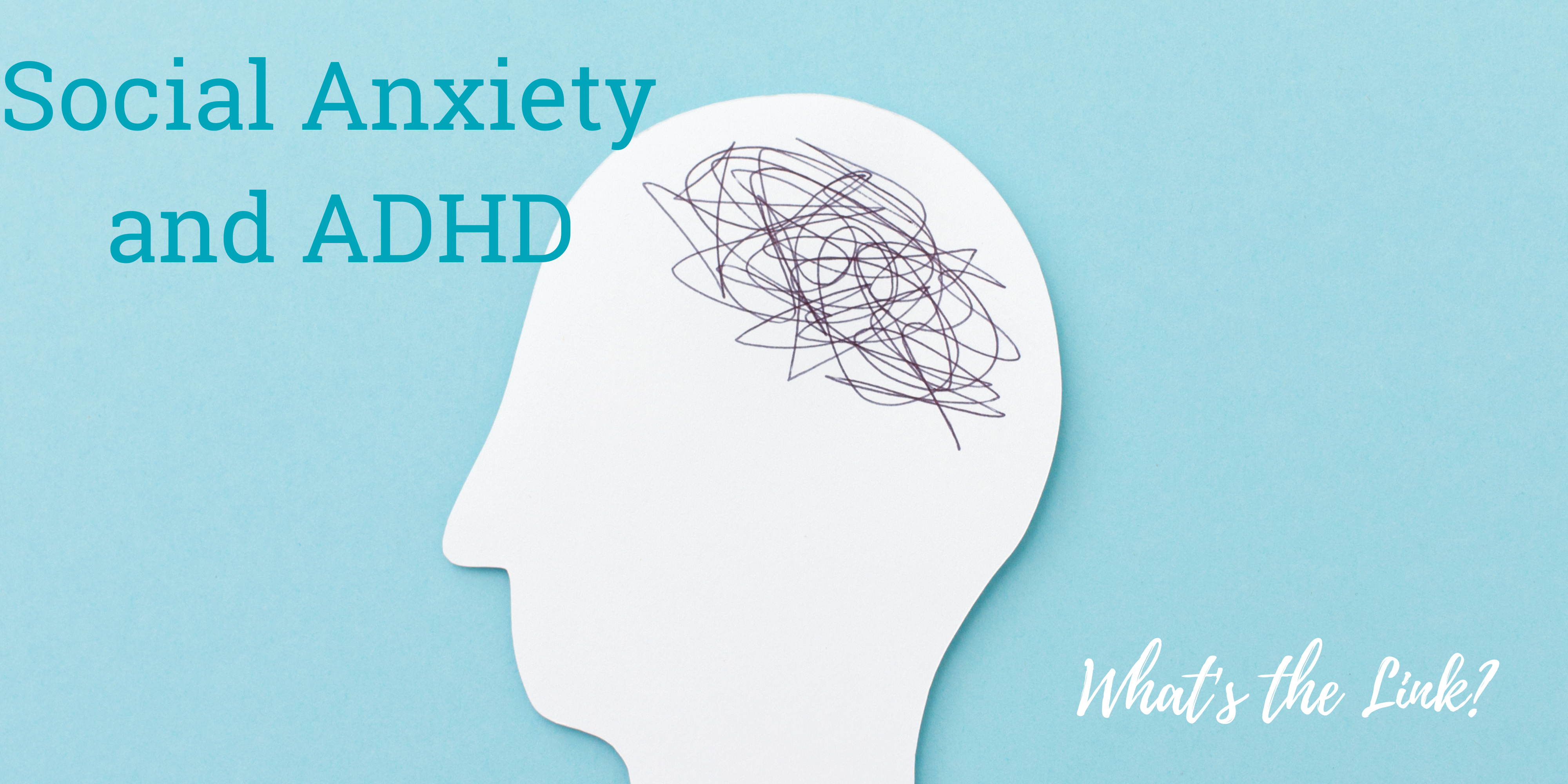
ADHD and Social Anxiety: Can They Occur Together?
If you have ADHD, you might wonder if some of your symptoms are related to other psychiatric conditions, such as social anxiety. ADHD and social anxiety disorder can exist at the same time. In fact, as many as 80% of people with ADHD are diagnosed with at least one other mental health condition throughout their life. This includes anxiety disorders and depression. Just as untreated (or undertreated) ADHD can contribute to problems in everyday life, comorbid conditions (conditions that occur at the same time as ADHD) can cause problems if they are left undiagnosed and untreated.
Any anxiety disorder — which includes generalized anxiety disorder, PTSD, OCD, and social anxiety disorder — can coexist alongside ADHD. However, social anxiety disorder is one of the most common anxiety disorders to coexist with ADHD. Here at Next Step 4 ADHD, our team of experienced providers excels at diagnosing and treating ADHD as well as social anxiety.
In this blog, we explore the differences between the two conditions and how they are treated.
Are My Symptoms Related to ADHD or Social Anxiety?
As we continue to emerge from the pandemic, and especially as some social environments continue to return to a more normal state after the pandemic, it’s important to note that social anxiety disorder and ADHD can sometimes share overlapping symptoms.
The following symptoms can be signs of ADHD and/or social anxiety:
- Difficulty socializing
- Inattention
- Trouble completing tasks
- Fidgety (Yes, social anxiety can also contribute to fidgeting!)
Social anxiety can cause other symptoms. This includes physical symptoms (like an upset stomach), avoidance, intense worry and fear, and canceling outings. You can learn more about social anxiety here.
Sometimes, though, the symptoms of ADHD can overshadow the symptoms of social anxiety, especially if school performance is being affected by ADHD. As a result, social anxiety can often go undiagnosed in both adults and children who also have ADHD. Additionally, the reduced social interaction throughout the last year may have hidden some of these symptoms. If you spot the signs of social anxiety (or any other anxiety disorder), don’t hesitate to let us know. Returning to society doesn’t have to be impossible, and we can help you.
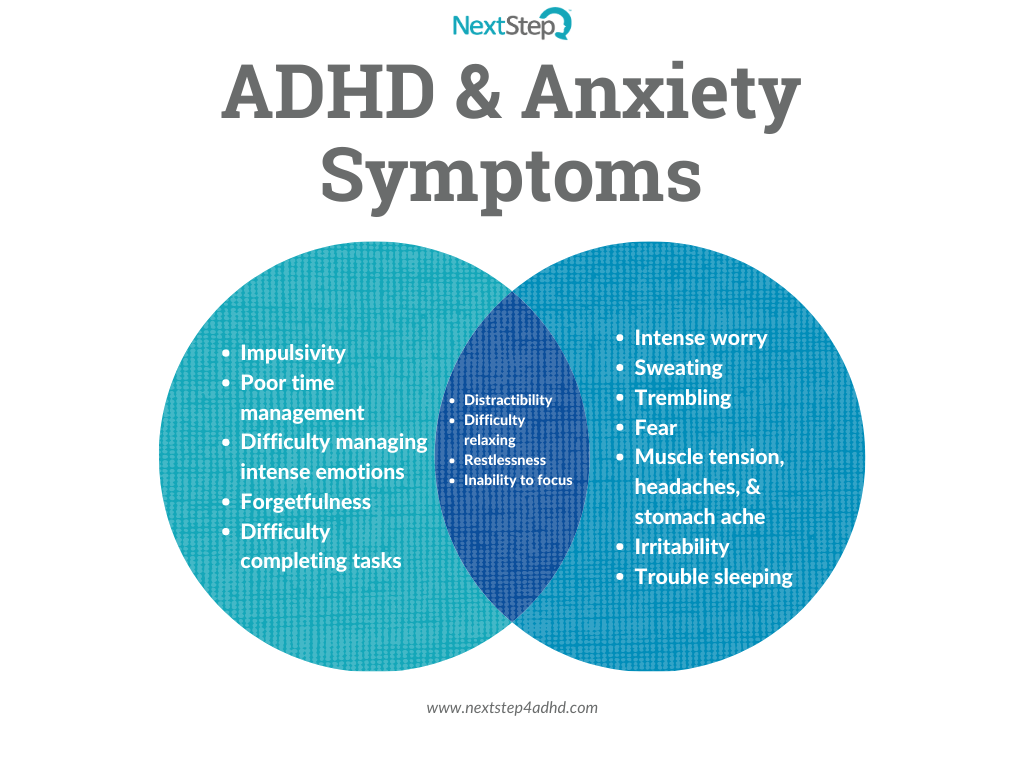
Treating Co-Occurring Conditions
Here at Next Step 4 ADHD, we take a multidisciplinary approach to treatment. This means your treatment plan is well-rounded and may include any of the following:
- Medication
- Therapy
- Lifestyle modifications
Medications
Common medications used to treat ADHD include both stimulants and non-stimulants.
Some medications may be used to treat both ADHD and anxiety at the same time. According to a 2009 study, selective norepinephrine reuptake inhibitors (SNRIs) may target both ADHD and anxiety symptoms. The same study, which was published in the journal Depression & Anxiety, found that Atomoxetine treatment improved both ADHD and comorbid social anxiety disorder in adults.
Therapy
While medication is often included into the treatment plans for ADHD, many people also benefit from non-medication therapies too. This is especially true for those diagnosed with an anxiety disorder.
Approaches such as cognitive behavioral therapy (CBT) can provide strategies for overcoming many of the underlying struggles of both social anxiety disorder and ADHD.
In addition to CBT, lifestyle changes can also help reduce symptoms of both ADHD and social anxiety disorder. This includes:
- Exercising regularly
- Eating well-balanced meals
- Practicing stress management techniques
- Practicing self-care, including good sleep hygiene
- Relaxing
A Word From Next Step 4 ADHD
A co-occurring diagnosis of social anxiety disorder can be a lifelong reality for an adult or child with ADHD. It’s normal to feel overwhelmed at the thought of multiple diagnoses, but learning more about the connection between these two conditions is the first step toward improving your control over your life. When you’re ready to schedule your consultation, give us a call and we’ll help you take your next steps so you can thrive.
Learn More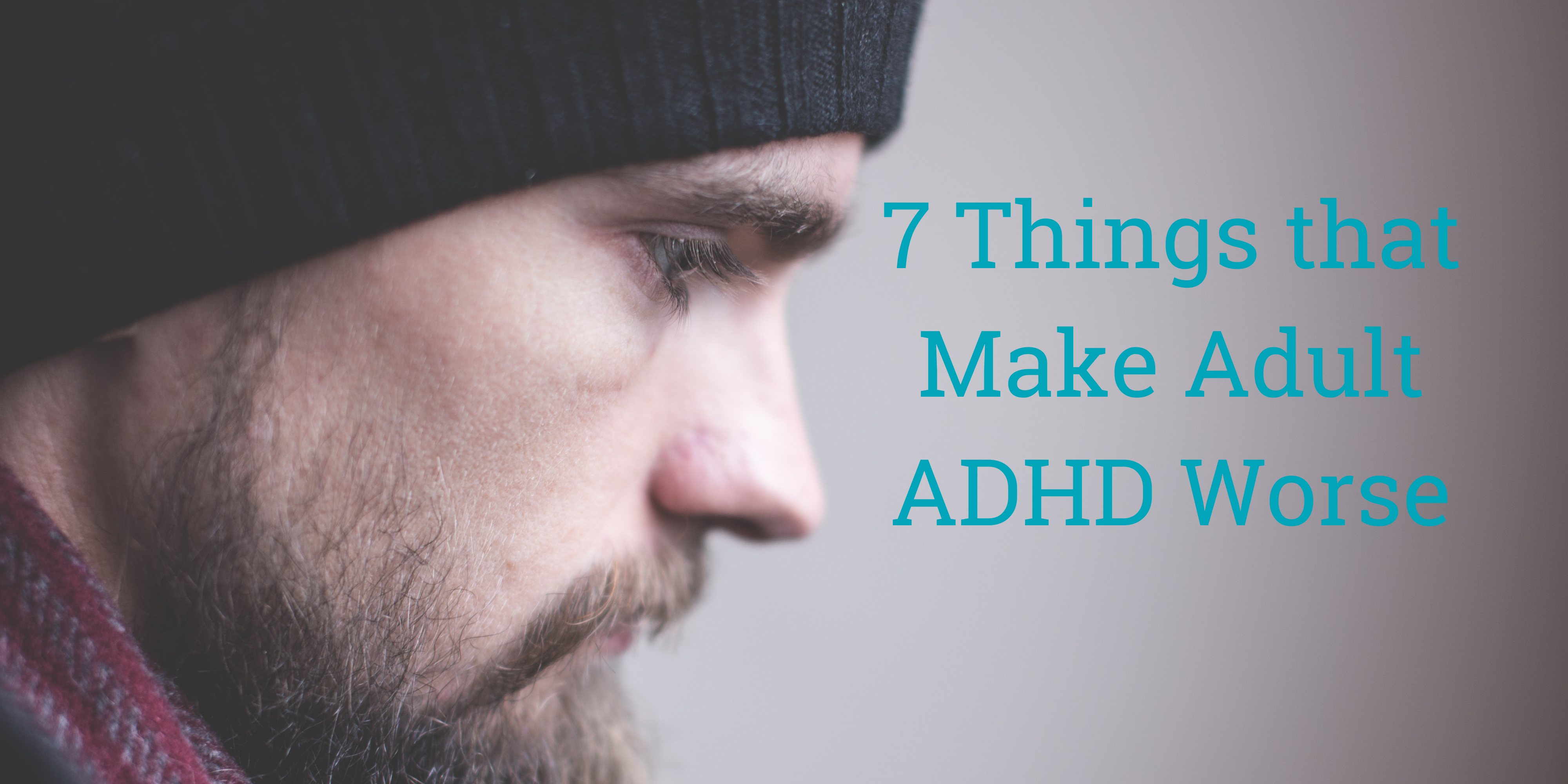
7 Things that Make Adult ADHD Worse
Your lifestyle habits have a profound influence on your physical and mental health. Unfortunately, some habits can inadvertently make your adult ADHD symptoms worse.
In this blog, we share seven things that make adult ADHD worse — and how you can implement other lifestyle changes to support your brain health.
1. Skipping Your Daily Workout
If you’re stuck in a brain fog, your ADHD may be to blame. But if you skip your workout day after day, your brain isn’t getting the extra boost it needs. Physical activity is good for your body, but it also does incredible things for your mental health too! Physical activity can improve your memory, boost your clarity and combat brain fog, help you make decisions, solidify what you learn, and help you pay attention.
Time to dust off those gym shoes! Any physical activity helps whether that’s walking around your neighborhood, biking on a stationary bike, or swimming at your local rec center.
2. Eating Out Too Much
What you eat (and what you don’t eat) has a big impact on your mental wellness. Healthy food (especially food with brain-boosting omega 3 fatty acids) can help you manage ADHD and support overall brain function, but it’s hard to find healthy food in restaurants, especially fast food restaurants. Restaurant food tends to be loaded with sugar, sodium, and fat. Not to mention, soda and sugary foods with additives can exacerbate your ADHD symptoms.
Need tips for meal planning? Read this blog.
3. Skipping the First Meal of the Day
You know the saying: breakfast is the most important meal of the day. Breakfast quite literally “breaks your fast” from overnight and helps jumpstart your metabolism. Skipping breakfast can increase brain fog and derail your focus later on during the day.
In addition, eating breakfast can make it easier to handle social situations, to power through your meeting at work, and stay focused.
Tip: If your ADHD medication zaps your appetite, try to eat at least something. You don’t need to eat a huge breakfast. Even a yogurt parfait or a hard-boiled egg can help!
4. Neglecting Your Desk
A messy desk can make it even harder to stay organized. Clearing the clutter can help you stay more organized at work. Invest in a desk organizer or folder systems to help tidy up those loose papers.
5. Skipping Your Medication
If you’re prescribed ADHD medication, it’s important to take it as directed, even if you feel good. If you need help remembering to take your medication, use the reminder feature on your phone, or set an alarm clock. You can also keep a sticky note on your car keys or bathroom mirror.
6. Staying Up Too Late
We know it’s all too easy to get sucked into “just one more episode”, but if your late-night habits keep you from getting the sleep your body needs, your ADHD symptoms might get worse. Unfortunately, sleep problems and ADHD often go hand in hand. The problem is that a lack of sleep doesn’t just leave you exhausted; it can:
- Worsen ADHD symptoms
- Affect your mood
- Increase brain fog
- Affect your judgment and decision-making
- Increase your risk of heart disease, obesity, and other chronic conditions
Need tips on improving your sleep? Read this blog on sleep hygiene.
7. Spending Too Much Time with Screens
Did you know the blue light emitted from screens (including TVs, tablets, and smartphones) can affect your circadian rhythm? Staring at screens before bed can make it even harder to fall asleep.
Here are some screen-free options for unwinding before bed:
- Reading
- Relaxing in a hot bath
- Crocheting and knitting
- Working on a puzzle
Still Struggling with Adult ADHD?
If you’re struggling to manage your adult ADHD, we can help. As a multidisciplinary practice, we view ADHD treatment from a multifaceted approach. That means we look at the whole person and include lifestyle changes, medication, coaching (group, individual, and parenting coaching), and therapy as potential treatment options for you.
If you have questions about ADHD or would like to explore your treatment options, give us a call at 502-907-5908. You can also request an appointment here.
Learn More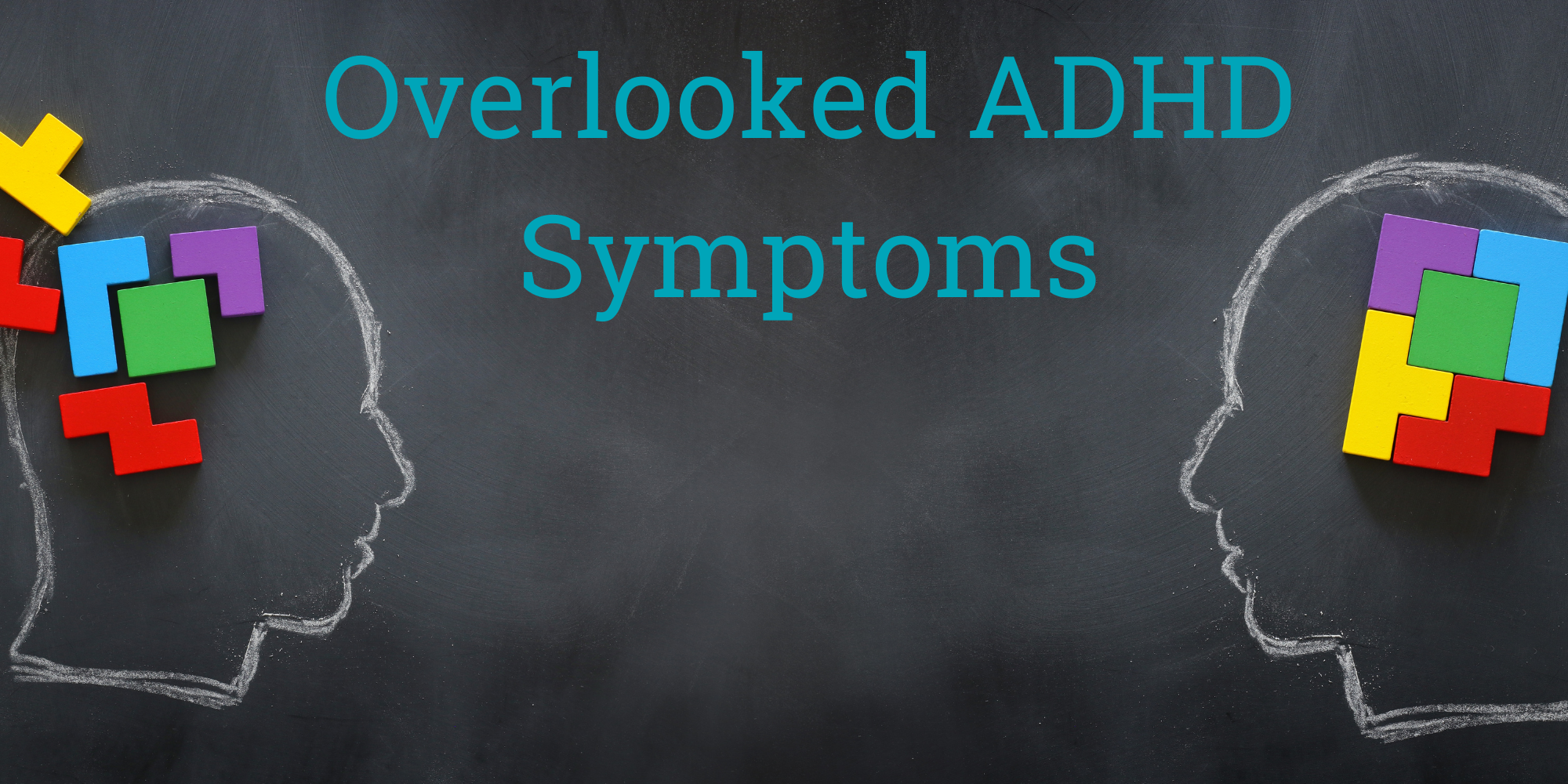
Three Often Overlooked Symptoms of ADHD
Some symptoms of ADHD are well-known: hyperactivity, fidgeting, and difficulty paying attention to details. However, these are far from the only signs and symptoms of ADHD.
According to the Diagnostic and Statistical Manual of Mental Disorders (AKA the DSM-5), there are 18 diagnostic criteria that must be met before someone is diagnosed with ADHD. Despite this, it’s sometimes difficult to recognize the signs of ADHD in yourself (or your child).
In this blog, we cover three often overlooked symptoms of ADHD, including:
- Hyperfocus
- Emotional dysregulation and emotional hyperarousal
- Rejection sensitivity
[Self Test: ADHD Quiz: Is Undiagnosed ADHD Affecting Your Child?]
1. Hyperfocus
The name “attention deficit hyperactivity disorder” can be misleading. It sounds like there is a deficit (lack) of attention. To some degree, that is true. Inattention and lack of focus are hallmark signs of ADHD, but that doesn’t mean you never can focus on anything. ADHD is an interest-based nervous system.
So, what does that mean?
ADHD doesn’t cause a lack of attention; rather it causes inconsistent attention.
This means that your child might struggle to pay attention in history class, but “get in the zone” while exploring music theory.
“Getting in the zone” is often referred to as hyperfocus. Hyperfocus is an intense concentration that focuses on one subject/task. During this period of hyperfocus, you might feel like you can accomplish anything related to this task, and you might completely lose all sense of time.
Hyperfocus is not externally driven. For example, a teacher assigning a project won’t trigger a hyperfocus. Instead, hyperfocus is created by an internal interest in the subject. You might experience an intense urgency to complete X, Y, Z.
Do you struggle with hyperfocus?
Because ADHD is a an interest-based nervous system is interest-based (and not priority based), this can cause problems in completing necessary projects at work or school. You might feel compelled to stay up until you finish an interest-based project, while letting a required project sit unfinished.
You might struggle with hyperfocus if:
- You struggle to pay attention to things that don’t interest you
- You have no problem focusing on things that do interest you
- You lose track of time while focusing on your preferred topics
- You miss deadlines for work or school because hyperfocus sessions
Living with an interest-based nervous system
Here at Next Step 4 ADHD, we approach ADHD treatments holistically. Our multidisciplinary treatment plans may involve:
- ADHD medication
- Skills and strategies that help you engage topics on demand
- Therapy
Planning and organization is a skill set that can be particularly useful. (Coaching can help you develop this skill set!)
2. Emotional Dysregulation and Emotional Hyperarousal
ADHD can make it harder for some individuals to regulate feelings or emotions. This includes sadness, anger, and anxiety. As a result, children or adults with unmanaged ADHD are more prone to experience extremely emotional reactions that may not match the trigger. For instance, a child may throw a temper tantrum when snack time is over. The inability to regulate your emotions is called emotion dysregulation.
Emotional hyperarousal refers to experiencing emotions more intensely.
Managing Emotional Dysregulation
You can develop skills that help you identify your emotions and manage them appropriately. Learn more about emotional dysregulation in this blog.
3. Rejection Sensitivity
“Attention deficit hyperactivity disorder (ADHD) makes it harder to focus, pay attention, and sit still. Most people who have ADHD are also very sensitive to what other people think or say about them. This is sometimes called rejection sensitive dysphoria (RSD), which is not a medical diagnosis, but a way of describing certain symptoms associated with ADHD.”
Rejection Sensitive Dysphoria — Causes and Treatment (webmd.com)
Recognize RSD
If you have RSD, you might:
- Feel embarrassed often
- Have low self-esteem
- Struggle to manage your emotions when/if you feel rejected by someone
- Struggle to maintain relationships
- Feel like a failure
- Set high standards for yourself (often unrealistically high)
Managing Rejection Sensitivity
Lifestyle habits can go a long way in helping to manage rejection sensitivity. This includes eating a well-balanced diet, sleeping enough at night, and exercising regularly. You might also benefit from stress management techniques including meditation, yoga, and spending time doing an activity you love.
It’s also important to take a minute to look at the messages we send ourselves. Did you know that ADHD researchers found that children with ADHD receive an estimated 20,000 more negative messages?! Criticism — whether it’s real, imagined, internal, or from outside sources — takes a toll on your self-esteem. You can help combat this by practicing positive self-talk strategies.
What to Do If You Notice These Often Overlooked Signs of ADHD
Don’t hesitate to reach out for help if you spot these symptoms. It can be overwhelming to try and determine the source of your struggles, but you’re never on this journey alone. If untreated ADHD is holding you back, we can help.
ADHD is treatable, and with the right treatment, you can reclaim control over your life. ADHD treatment includes medication, lifestyle changes, coaching (group, individual, and parenting coaching), and therapy — all of which are available here at Next Step.
If you have questions about ADHD or would like to explore your treatment options, give us a call at 502-907-5908. You can also request an appointment here.
Learn More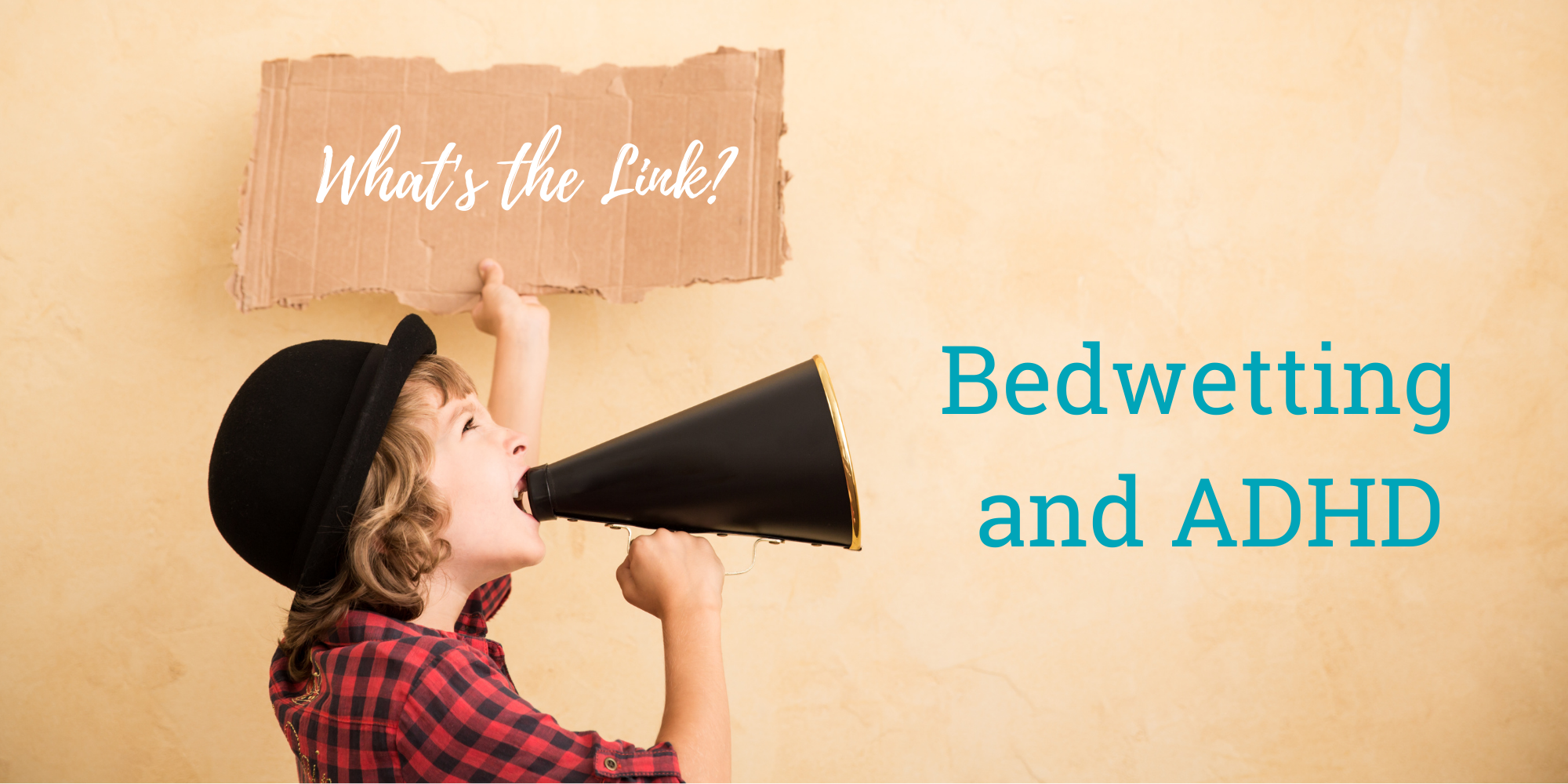
What’s the Link Between ADHD and Bedwetting?
Question: My son has had frequent accidents, but we could never could figure out why. The UTI tests always came back clear. Can ADHD contribute to bedwetting and accidents?
Bedwetting can be a struggle for many parents, but it can be even more of an issue for parents of children with ADHD.
Why?
There’s a link between accidents and ADHD. In fact, the rate of accidents is almost 3x higher in children with ADHD than in children without ADHD.
What’s the Link Between ADHD and Bedwetting?
About 20% of children have accidents, but that number is 2.7 times higher in children with ADHD, according to research. There are many reasons to explain this connection.
- Poor Impulse Control: Children with ADHD may simply miss their body’s cues telling them their bladder is full. This can lead to the sudden urge to go, and if a child waits too long, an accident is more likely to happen.
- Changes in Sleep: Changes to your child’s sleep routines may also keep his/her body from releases antidiuretic hormones. (You can learn more about good sleep tips here.)
- Increased Stress on Your Child’s Bladder Stress: If your child is constantly in the “go go go” mode, it can put stress on his/her bladder, which can increase the risk of accidents. Also, stimulant ADHD medications can add even more stress on the bladder.
- Behavioral Differences: Children with ADHD may struggle to read their normal bodily cues and stick with routines.
When Will the Bedwetting End?
Although it’s impossible to answer this question with a definitive answer, the reality is that most children grow out of bedwetting. As children learn to read their bodily cues, bathroom time becomes easier and easier.
Here are a few things you can do to help your child:
- Schedule regular bathroom breaks throughout the day (this encourages your child to check in with his or her bodily cues)
- Encourage your child to use the restroom right before bed
- Avoid drinking large amounts of water or milk right before bed
- Take regular breaks from playtime to use the restroom
When to Seek Medical Care for Bedwetting
Sometimes accidents can be a sign of an underlying medical problem, such as a urinary tract infection. If you have concerns about your child’s bedwetting, it’s a good idea to check in with his or her pediatrician.
Regardless of what’s contributing to your child’s accidents, remember that having an accident can be very frustrating and embarrassing for a child. Support your child and reassure him/her that it’s not their fault. Encourage them, let them know you’re there, and that the bedwetting will get better over time.
All of Your ADHD Needs Under One Roof
Learning as much as you can about the developmental aspects of ADHD makes it easier for you to understand and support your child, whether they are dealing with accidents or another issue. You may also find that anxiety can contribute to and exacerbate ADHD, which can then make bedwetting worse.
Here at Next Step 4 ADHD, we are a multidisciplinary practice, and our team of experts excels at treating ADHD and anxiety in children. If your child is struggling with ADHD and/or anxiety, we can help. Book your appointment here and get started with your next steps today.
Learn More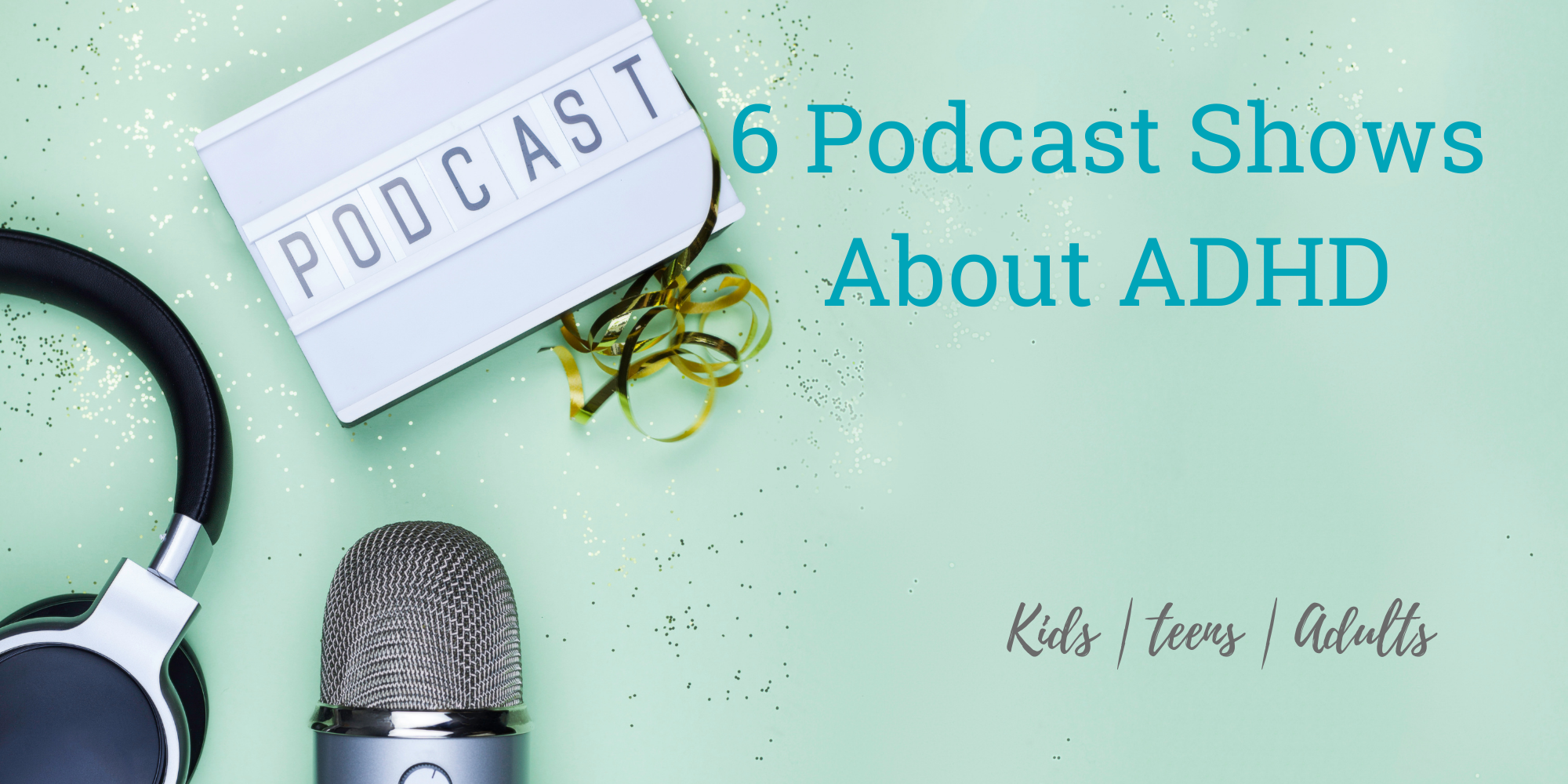
6 Podcast Shows that Focus on ADHD
Do you love to listen to podcasts on your way to work or while you’re at the gym? Below are 6 podcast shows that focus on ADHD or raising a child with ADHD.
1. Children and Adults with ADHD (CHADD)
CHADD hosts two different podcast shows: All Things ADHD and ADHD 365. Together, these two shows address a variety of topics for anyone dealing with ADHD. If you’re looking for tips and strategies for parents, teens, or adults, tune in. Educators and professionals can also benefit from these two shows.
2. Taking Control: The ADHD Podcast with Nikki Kinzer and Pete Wright — Nikki Kinzer
Hosted by Nikki Kinzer, PCC — a certified ADHD coach — this podcast is ideal for people looking to develop positive strategies to manage time, get organized, de-stress, and make themselves more productive.
Filled with actionable tips, this podcast helps you get back on track.
3. Adult Attention Deficit Disorders Center of Maryland
Led by the Adult Attention Deficit Disorders Center of Maryland, this education podcast shares information on ADHD, co-existing conditions, and tips for living with ADHD.
4. Distracted
The Distracted Podcast highlights all of the positives of ADHD. (You can also take our free course on the 10 Strengths of ADHD.)
5. Positive Parenting Podcast with Jane Nelsen
Are you parenting a child with ADHD? Positive parenting is invaluable for raising children, but it’s especially fruitful for raising children with ADHD.
6. Parenting Your Challenging Child with Dr. Ross Greene
Dr. Ross Green is the developer of the Collaborative and Proactive Solutions approach to parenting. He’s also the author of The Explosive Child. In this podcast, he provides practical tools based on the Collaborative and Proactive Solutions approach.
Why Podcasts Help ADHD

Education is always the first step in any treatment plan, whether you’re on your own journey with ADHD or you’re parenting a child with ADHD. Podcasts are just one example of education materials that can help you learn more about ADHD and how to create strategies to overcome your obstacles.
If you don’t enjoy podcasts, that’s okay. There are many other ways to learn. You can:
- Read books
- Watch videos
- Take courses
Podcast aren’t designed to replace mental health care, but if you’re struggling, we can help. Our team of experts excels at diagnosing and treating ADHD. We offer medication management, therapy, ADHD coaching, parenting coaching, and so much more.
Book your appointment by calling 502-907-5908. You can also request an appointment here.
Learn More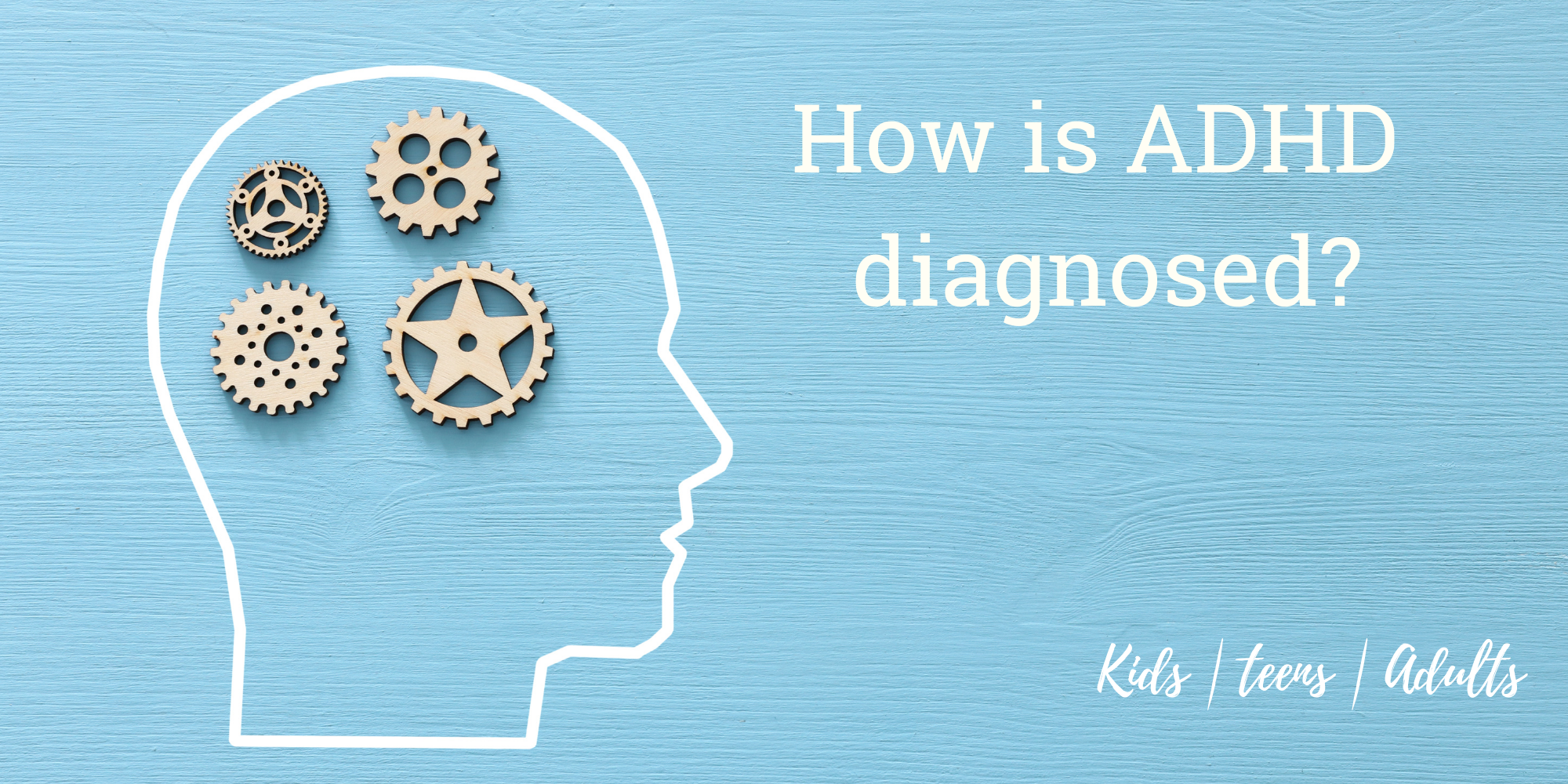
How Is ADHD Diagnosed?
If you or your child is struggling with inattention, lack of focus, or hyperactivity, how do you know if your symptoms are related to ADHD? There are many conditions that can mirror the symptoms of ADHD so that’s why an accurate diagnosis is key to helping you regain control over your life. But how is ADHD diagnosed?
At Next Step 4 ADHD, our expert team of multidisciplinary providers excels at diagnosing and treating ADHD in children, teens, and adults.
Below, we share more about the diagnosis process and how ADHD is diagnosed.
Diagnosing ADHD

There isn’t a lab test or blood test that diagnoses ADHD. Instead, mental healthcare providers rely on the guidelines for diagnosing ADHD outlined in the Diagnostic and Statistical Manual (DSM-5). The DSM is the standard used by the American Psychiatric Association.
Healthcare providers use the guidelines in the American Psychiatric Association’s Diagnostic and Statistical Manual, Fifth edition (DSM-5) to help diagnose ADHD.
What is the DSM-5 Criteria for Diagnosing ADHD?
Adults and children who have ADHD demonstrate a persistent pattern of inattention and/or hyperactivity–impulsivity. These symptoms typically interfere with daily functioning (at home, work, or school) as well as development:
Below is the DSM criteria for being diagnosed with ADHD:
- Inattention: Six or more symptoms of inattention for children up to age 16 years, or five or more for adolescents age 17 years and older and adults; symptoms of inattention have been present for at least 6 months, and they are inappropriate for developmental level:
- Often fails to give close attention to details or makes careless mistakes in schoolwork, at work, or with other activities.
- Often has trouble holding attention on tasks
- Often does not seem to listen when spoken to directly.
- Often does not follow through on instructions and fails to finish schoolwork, chores, or duties in the workplace
- Often has trouble organizing tasks and activities.
- Often avoids, dislikes, or is reluctant to do tasks that require mental effort over a long period of time (such as schoolwork or homework).
- Often loses things necessary for tasks and activities (e.g. school materials, pencils, books, tools, wallets, keys, paperwork, eyeglasses, mobile telephones).
- Is often easily distracted
- Is often forgetful in daily activities.
- Hyperactivity and Impulsivity: Six or more symptoms of hyperactivity-impulsivity for children up to age 16 years, or five or more for adolescents age 17 years and older and adults; symptoms of hyperactivity-impulsivity have been present for at least 6 months to an extent that is disruptive and inappropriate for the person’s developmental level:
- Often fidgets with or taps hands or feet, or squirms in seat.
- Often leaves seat in situations when remaining seated is expected.
- Often runs about or climbs in situations where it is not appropriate (adolescents or adults may be limited to feeling restless).
- Often unable to play or take part in leisure activities quietly.
- Is often “on the go” acting as if “driven by a motor”.
- Often talks excessively.
- Often blurts out an answer before a question has been completed.
- Often has trouble waiting their turn.
- Often interrupts or intrudes on others (e.g., butts into conversations or games)
In addition to demonstrating the above-listed symptoms, the following conditions must be met:
- Several inattentive or hyperactive-impulsive symptoms were present before age 12 years. (Even if you weren’t diagnosed as a child, you might recall experiences or examples of this e.g., never sitting still in school, etc.)
- Several symptoms are present in two or more settings, (such as at home, school or work; with friends or relatives; in other activities).
- There is clear evidence that the symptoms interfere with, or reduce the quality of, social, school, or work functioning.
- The symptoms are not better explained by another mental disorder (such as a mood disorder, anxiety disorder, dissociative disorder, or a personality disorder). The symptoms do not happen only during the course of schizophrenia or another psychotic disorder.
Based on the types of symptoms, three kinds (presentations) of ADHD can occur:
- Combined Presentation: if enough symptoms of both criteria inattention and hyperactivity-impulsivity were present for the past 6 months
- Predominantly Inattentive Presentation: if enough symptoms of inattention, but not hyperactivity-impulsivity, were present for the past six months
- Predominantly Hyperactive-Impulsive Presentation: if enough symptoms of hyperactivity-impulsivity, but not inattention, were present for the past six months.
What to Do If You Think You or Your Child Has ADHD?
It can be overwhelming to try and determine the source of your struggles, but you’re never on this journey alone. If untreated ADHD is holding you back, we can help.
ADHD is treatable, and with the right treatment, you can reclaim control over your life. ADHD treatment includes medication, lifestyle changes, coaching (group, individual, and parenting coaching), and therapy — all of which is available here at Next Step.
If you have questions about ADHD or would like to explore your treatment options, give us a call at 502-907-5908. You can also request an appointment here.
Learn More